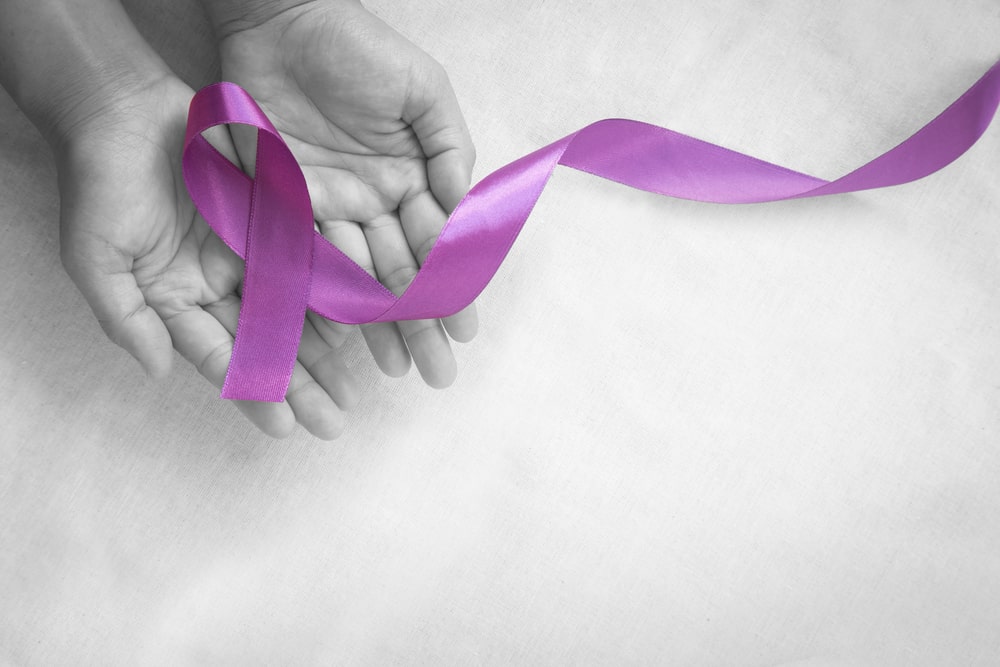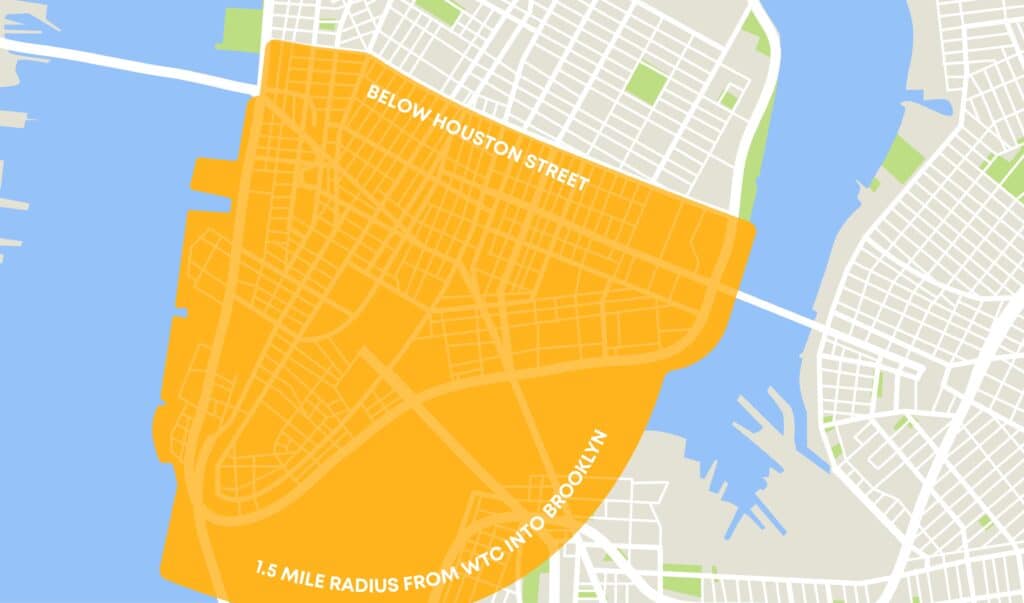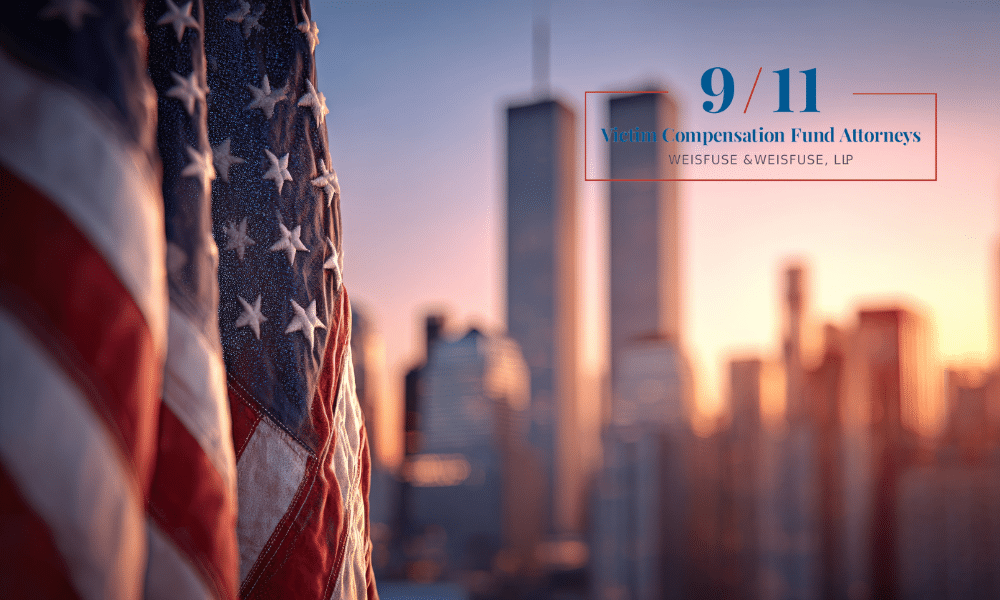
9/11 Pancreatic Cancer Compensation Claims
Following the 9/11 attacks on the World Trade Center, Pentagon, and flight 93, which crashed in Shanksville, PA, there has been a dramatic increase in serious medical problems among responders and others who lived, worked, and studied in those areas. The air quality in Lower Manhattan following the World Trade Center’s collapse resulted in dangerous levels of carcinogens that affected all of Lower Manhattan, resulting in thousands of 9/11-related cancers and aerodigestive disorders.
As a result, the James Zadroga 9/11 Health and Compensation Act was created in 2010, offering health care and compensation to individuals suffering from 9/11-related illnesses. The Zadroga Act is comprised of two programs — the World Trade Center Health Program (WTCHP), which offers medical care, and the September 11th Victim Compensation Fund (VCF), which provides compensation to victims and their families.
Pancreatic cancer and 9/11 payouts
Pancreatic cancer is one of the many serious illnesses linked to exposure to toxic dust and chemicals in Lower Manhattan following the 9/11 attacks. If you lived, worked, volunteered, or studied in the Exposure Zone between September 11, 2001, and May 30, 2002, and have been diagnosed with pancreatic cancer, you may be eligible for compensation through the September 11th Victim Compensation Fund (VCF).
The VCF provides tax-free payouts for individuals with certified 9/11-related cancers, covering lost earnings, medical expenses, pain and suffering, and other economic losses. Additionally, medical care—including screenings, treatment, and medications—may be available at no cost through the World Trade Center Health Program (WTCHP).
At Weisfuse & Weisfuse, LLC, we’ve helped thousands of 9/11 survivors and responders secure the compensation they deserve. Our experienced legal team works closely with each client to ensure their pancreatic cancer claim is fully documented and maximized under current VCF guidelines.
Call us today at 212-983-3000 for a free and confidential consultation to discuss your eligibility and next steps.
What is Pancreatic Cancer?
Pancreatic cancer affects the pancreas, a critical organ involved in the digestion of proteins, fats, and carbohydrates. It is also responsible for producing insulin, which helps to turn glucose into energy. Unfortunately, due to its location and lack of early symptoms, pancreatic cancer is often not diagnosed until it is in advanced stages. According to the American Cancer Society, pancreatic cancer is particularly deadly. However, it only accounts for three percent of annual cancer diagnoses and responsible for seven percent of cancer deaths.
Pancreatic Cancer Symptoms
As stated above, symptoms of pancreatic cancer often don’t appear until it’s too late. Furthermore, many of the symptoms are quite subtle or easily attributed to other medical conditions. Some of the most common symptoms include:
- Unexpected weight loss
- Loss of appetite
- Abdominal pain
- Lower back pain
- Jaundice
- Blood clots
- Depression
Pancreatic cancer can also metastasize (spread) to other parts of the body, producing symptoms not listed above.
Pancreatic Cancer Treatment
For anyone suffering from pancreatic cancer, treatment options will depend mainly on the stage of cancer and whether or not it has spread to other parts of the body. Some of the available treatment options may include:
- Surgery to remove the tumor
- Ablation (extreme heat or cold) to destroy the tumor without surgery
- Radiation
- Chemotherapy
- Immunotherapy
- Pain management
Source: https://www.healthline.com/health/pancreatic-cancer
The World Trade Center Health Program (WTCHP) recognizes pancreatic cancer as a 9/11-related health condition. The WTCHP determines the types of cancers covered based on medical studies showing the frequency of certain cancers among 9/11 survivors compared to the unexposed population. It also bases its decision on the existence of any peer-reviewed medical studies that link a type of cancer to the kinds of carcinogens found in the Exposure Zone.
9/11 VCF Compensation for Pancreatic Cancer Claims
Survivors and responders who were present at the WTC, Shanksville, or Pentagon crash sites on September 11th, 2001 through May 30th, 2002, and who have developed pancreatic cancer, may be eligible to obtain medical coverage through the WTC Health Program. They may also be entitled to compensation from the VCF for pain and suffering, loss of earnings, out-of-pocket expenses, and survivor benefits. Our experienced 9/11 fund lawyers evaluate claims, prosecute those that are meritorious, and protect our clients’ rights.
Contact Weisfuse & Weisfuse, LLC Today
Anyone who was present in the Exposure Zone between September 11th, 2001 to May 30th, 2002, and who has been diagnosed with pancreatic cancer, should contact the skilled legal team at Weisfuse & Weisfuse, LLC. Our experienced 9/11 pancreatic cancer attorneys help clients determine eligibility for compensation and obtain the maximum award to which they are entitled by always submitting medically-supported optional impact statements to the VCF. Skilled, thorough legal counsel is essential to navigating this complex process. Call Weisfuse & Weisfuse, LLC at 212-983-3000 for a free and confidential consultation today.







